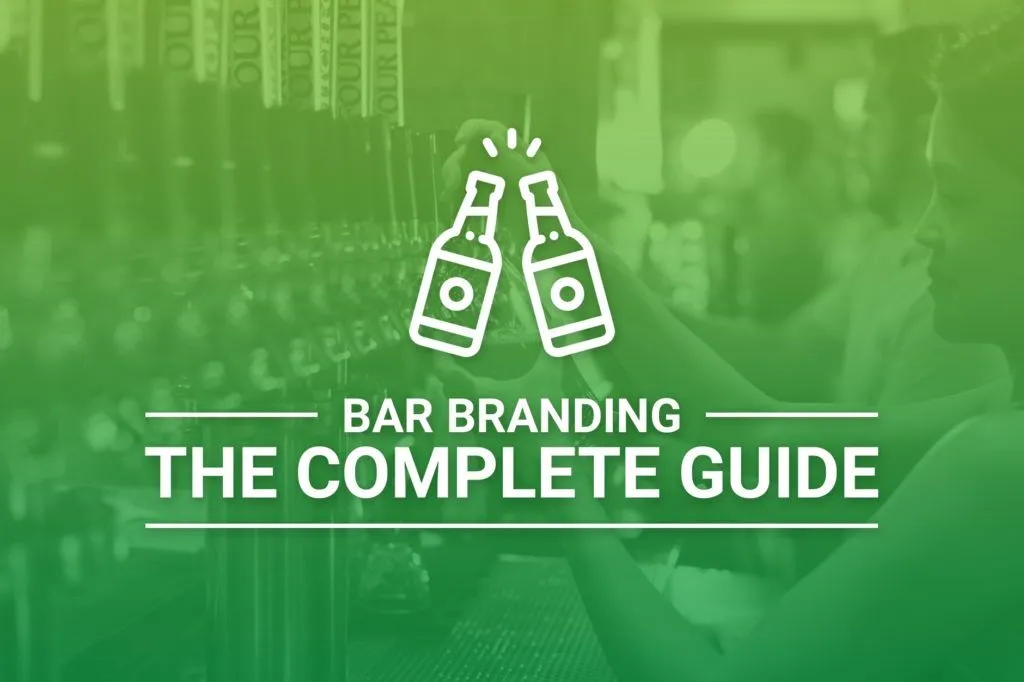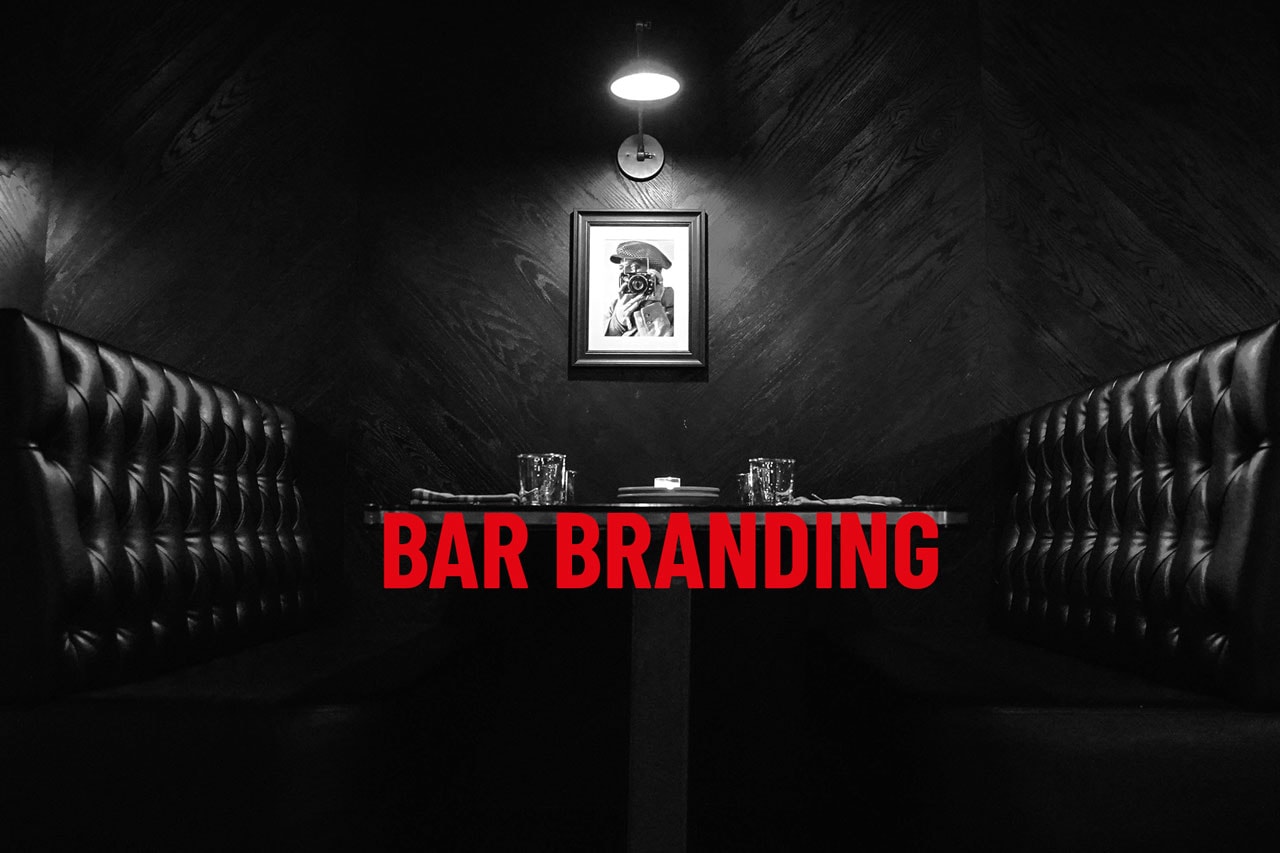
As a hospitality marketing professional, you’ve probably encountered phrases like “stay on brand”, “consistent with the brand story” and “true to brand” more frequently these days. While these expressions might come across as trite or even cringey, adopting the concept of aligning with your brand identity holds considerable value. This may not be Bar Branding – The Complete Guide – but here are several compelling reasons why…….

The Role of Branding
Establishing what is consistent with your brand and what isn’t right from the outset serves as a crucial blueprint. This blueprint aids bars in effectively conveying their vision to both customers and employees while eradicating any messaging disparities. Given that success in hospitality often hinges on invoking specific emotions, it becomes imperative for bars to communicate their narrative across all facets of the experience and eliminate any factors that might disrupt the overall ambience. By setting clear guidelines based on branding, particularly for independently owned establishments, bars can attain this uniformity. This approach filters out elements that might bewilder employees or customers regarding the essence they’re engaging with.
Branding’s Impact on Bar Design
Initially, having a coherent narrative assists bars in selecting design elements that transcend mere aesthetics to acquire strategic significance. Furthermore, a well-defined brand identity offers a foundation for naming room categories, event venues, menu offerings, colour schemes, uniforms, and more. It affords the sales and marketing team room for creativity, within the confines of the original vision. In essence, the initial branding effort yields dividends in terms of internal cohesion and the depth with which guest emotions are stirred.
Branding’s Influence on Company Culture
This extends beyond the bar’s visual aesthetics. A clear brand identity mitigates the risk of the vision becoming diluted when new staff members or management teams come into play. Without a distinct story, staff members are left to interpret their perception of the brand, leading to inconsistencies in guest interactions, operational practices, sales, and marketing. Consequently, there’s a lack of unified communication between the sales representative and the client, from the moment they enter and engage with bellmen, front desk staff, and others. Similar to incongruent design, a disjointed customer experience evokes perplexing emotions, and an uncertain customer is undesirable for business.
Robust Brand Identity and Its Benefits
But why is that the case? Multiple studies have demonstrated that the primary factor driving consumer purchase decisions is trust, and employees play a pivotal role in cultivating trust. When employees can identify with and see themselves reflected in the brand, they approach their roles with greater dedication, pride, and longevity. Committed employees instil a sense of reassurance when returning clients check in, recognise employees and receive personalized greetings. An established identity nurtures consistency, instilling guest loyalty, which translates to increased clientele and revenue. Opting for a hotel with a distinct identity transforms the stay into more than a transaction; it becomes a personally resonating experience grounded in trust and dependability.
Crafting a Strong Bar Brand
Embarking on the journey of crafting an identity and brand might seem daunting, but breaking down the process into manageable steps can be immensely helpful. Begin by identifying your foundational principles, which should be evident across marketing endeavours and operational strategies. These principles underpin your mission statement, company ethos, training manuals, marketing collateral, voice, and tone guidelines. While it requires time and investment, this process forms the bedrock of your brand. A robust foundation is indispensable when constructing anything substantial.
Sustaining Brand Momentum
BrandX works with both big groups and independents. We encounter numerous passionate bar owners whose enthusiasm sometimes led to chaos. Yet, this chaos wasn’t inherently negative; it assisted us as the management company in understanding their priorities, which we could subsequently translate into the property. While initially enlightening and inspiring, this level of involvement can hinder progress down the line. We’ve witnessed owners stepping into the room and deciding to replace a DJ they didn’t favour, without considering the broader implications. This prompted meetings to justify the DJ’s hiring, their target audience, the ambience they create, and the revenue they generate. Thus, the most valuable advice I can offer to an owner is, once you and your management team have established your brand, refrain from micro-managing day-to-day operations and allow the management company to take the lead.
Ultimately, both management and ownership share a common objective: crafting a successful hotel. While success is conventionally measured through profit and loss statements, leveraging your brand serves as the roadmap leading to these successes. This roadmap can also enhance the sustainability and replicability of achievements when diligently upheld by a cohesive, united team.

If you want to find out more about how Clubs4fun can help your club, get in contact now:
The Studio
37 Dawson Street
Dublin 2
Ireland
Tel: +353 (0)1 603 4555
Email: hello@brandx.ie